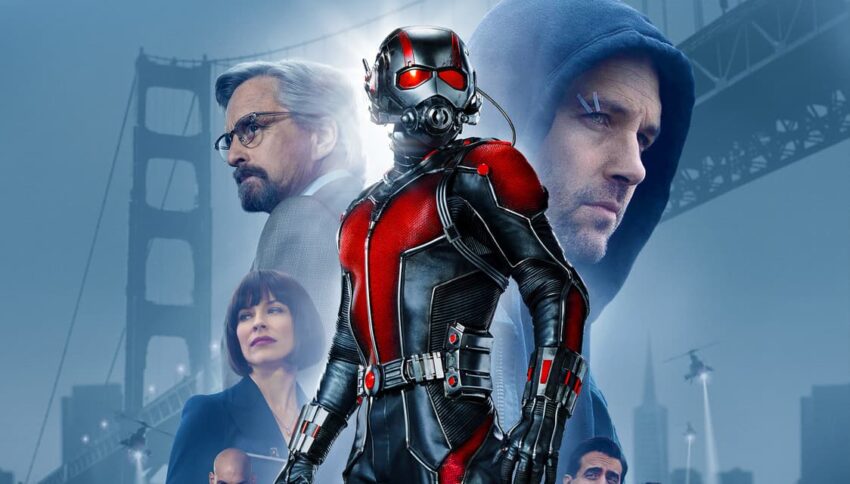It’s hard to share things that are close to your heart. It can be even harder to write them. It’s difficult to write scenes when your characters cry or share their deepest fears, because it’s the most vulnerable moment in your entire book. If your readers relate to their most passionate thoughts and secrets, your characters will become unforgettable. If they find the emotional passages to be cringy and overdone, they might not ever pick up your book again. These scenes are simultaneously the most powerful and yet delicate parts of your book.
There’s a lot riding on these scenes.
And it can be hard to do them well.
But many writers have found a way out. They use humor within their emotional scenes to escape criticism, because as long as at least one character is laughing at the more emotional passages, the readers who don’t like them will always have someone to relate to. And the readers who do can enjoy the scenes, anyway.
It seems like the perfect solution, doesn’t it?
Let’s look at this now-wildly popular technique through Marvel’s Ant-Man.
Ant-Man
Ant-Man follows Scott Lang, a young father and recently-released criminal who only wants to be with his daughter, Cassie, again. He’s promised that he’s done with crime forever, but his highly public scandal is making it impossible for him to hold down a job. As long as he’s not paying child support, his ex-wife has told him he can’t visit his daughter. Even splitting rent isn’t enough for him to make ends meet, and so when he is approached by a business tycoon known as Hank Pym, who is set on using advanced technology to steal a dangerous weapon from his own company, Scott doesn’t see any other options.
If he succeeds, Scott will have enough money to pay child support and visit Cassie regularly. If he fails, he’ll be caught, jailed, and might not ever see her again.
Hank Pym has lost control of his own company after his estranged daughter, Hope, and protege, Darren Cross took over and voted him off the board. But Hope now sees that Darren is power-hungry and has no intention to use any of her father’s inventions for good. She realizes she needs her father as an ally to stop Darren and protect dangerous technology from falling into the wrong hands.
So they join forces, despite their complicated past. Hope lost her mother years before, and Hank still hasn’t told her how she died. Shortly after her funeral and at the age of seven, Hope was sent off to boarding school, which ended up separating her from her father when she needed him most.
Now, they disagree on almost everything, despite deciding to join forces to fight Darren Cross. Hope recognizes the most practical way to navigate the mission would be for her to execute it, rather than Scott. Hank, secretly terrified of putting his daughter’s life on the line and losing her as well, absolutely refuses, with no explanation and little reasoning behind his seemingly irrational and controlling decision. But they’re soon reaching an impasse. Their arguments are making it difficult to move forward and adding unnecessary friction to a mission that isn’t supposed to be personal.
Both are quickly realizing that something has to change.
Finally, Hank tells Hope how her mother died. Back when he was a SHIELD agent, he and his wife used to be partners on missions together. But one mission went badly, and when his technology malfunctioned, Hank wasn’t able to save her. She sacrificed herself for him, preventing a war in the process. Her mother died a hero, and Hank reveals that he’s terrified Hope will end up doing the same. He can’t lose both of them, because despite their differences, regardless of his mistakes in raising her, Hope is still his daughter, and he would do anything to protect her. Even if it doesn’t seem to make sense, even if it alienates her in the process, even if it very well might cause a terrorist organization to obtain some very powerful weapons. He simply can’t stand by and watch his family suffer all over again.
That’s when Scott steps in and says, “This is awesome. It’s awesome, you know? You’re breaking down walls, you’re healing. It’s important.” Scott smiles at both of them, while they stare back in stunned silence.
“I ruined the moment, didn’t I?” he asks, as if suddenly realizing his mistake.
“Yes,” Hank answers. “Yes, you did.”
Don’t be Afraid of Depth
To be fair, that moment was pretty funny. The actors played it off well, and it suited Scott’s character while also giving the audience a moment to laugh in an emotionally heavy moment. Isn’t that important? Just a few weeks ago, we talked about how crucial it is to give your audience a chance to laugh between emotionally weighty subjects.
The point here is that they should laugh between emotionally weighty subjects. Not in the middle of one.
Humor is good. It can be important to include even in the darkest of stories. But it should only be included if it isn’t sacrificing another aspect of your storytelling.
Here, Scott sacrifices an emotional moment that both highlights the father-daughter themes of this movie and resolves tension that has been building ever since Hope and Hank both appeared on screen. Their conflict has been expertly built to climax at this moment into a resolution worth waiting for… And then the writers have Scott turn it into a joke.
The writers for Ant-Man clearly wanted to write a heartfelt but lighthearted movie with plenty of comedic moments. They didn’t want to write a drama or a soap opera. And on the surface, having a father and daughter tearfully reconcile over memories of their dead wife and mother sounds a little overdone.
But there are plenty of jokes in this movie. There aren’t many scenes as moving as this one. That makes it worth preserving. And while I appreciate the writers’ desire to write a movie that is lighthearted, they ultimately ended up sabotaging the very few moments that give this movie a sort of depth and meaning.
Not to mention, putting humor in these moments can seem insecure. At times, it makes it painfully obvious that the writer is afraid of depth. They can work so hard avoiding it that it becomes obvious to the audience that the humor is tacked on, supposedly to help the movie’s tone, but ultimately hurting its themes.
Hope and Hank’s relationship had been developing since they both appeared on screen, and the scene above marked the end to its change and the resolution to the tension that had been building throughout the story. It showed both Hank and Hope’s new perspective, and revealed the answer to the long-standing question of what happened to Hope’s mother. It also furthered father-daughter themes in the movie. A scene as important as that deserved an emotional impact. It was completely fine to allow Hope to cry, for her father’s voice to crack, and for Scott to hang back, thinking about his relationship with his own daughter while he silently watched the reconciliation in front of him.
And it wouldn’t have sacrificed the light-hearted tone of the move.
In fact, the tone would be the same with or without Scott’s joke. That scene would give the movie heart or make it seem cringy either way. Tacking the joke on didn’t actually end up doing much except showing the writers’ own insecurities. They were afraid of the depth that gave their movie meaning, and so they tried to hide it with a joke.
Don’t be afraid of depth.
Make jokes, have laughs, but when you want to highlight your theme, redeem a relationship, or have a character develop, let your characters show your audience why your story matters without being inhibited by a joke.



On a whole, Marvel has served as a masterclass on making emotional scenes worth it, especially in its first few movies. We’re considering doing a series like our Month In Ba Sing Se again — this time for the MCU! If you’d like to see that on the blog, let us know in the comments below!


Hi! My name is Mara, and I’m a Christian artist, violinist, and blogger. I remember the day that I decided that I would learn something new about what makes a good story from every book I picked up — whether it was good, bad, or a mixture of both. I use this blog as a way of sharing some of the tips and tricks I’ve learned, and highlight which books, cartoons, and movies have taught me the most about writing an awesome story.


I’d love to see an MCU series! I’m quite enjoying your blog and it really helps me to understand these techniques when I can see them in a movie I’m familiar with!
That’s awesome! As a fellow MCU fan, I would love to write a whole series on Marvel movies. I’ve gotten a lot of requests for an article on how to make emotional scenes matter, so I think it’s going to happen!